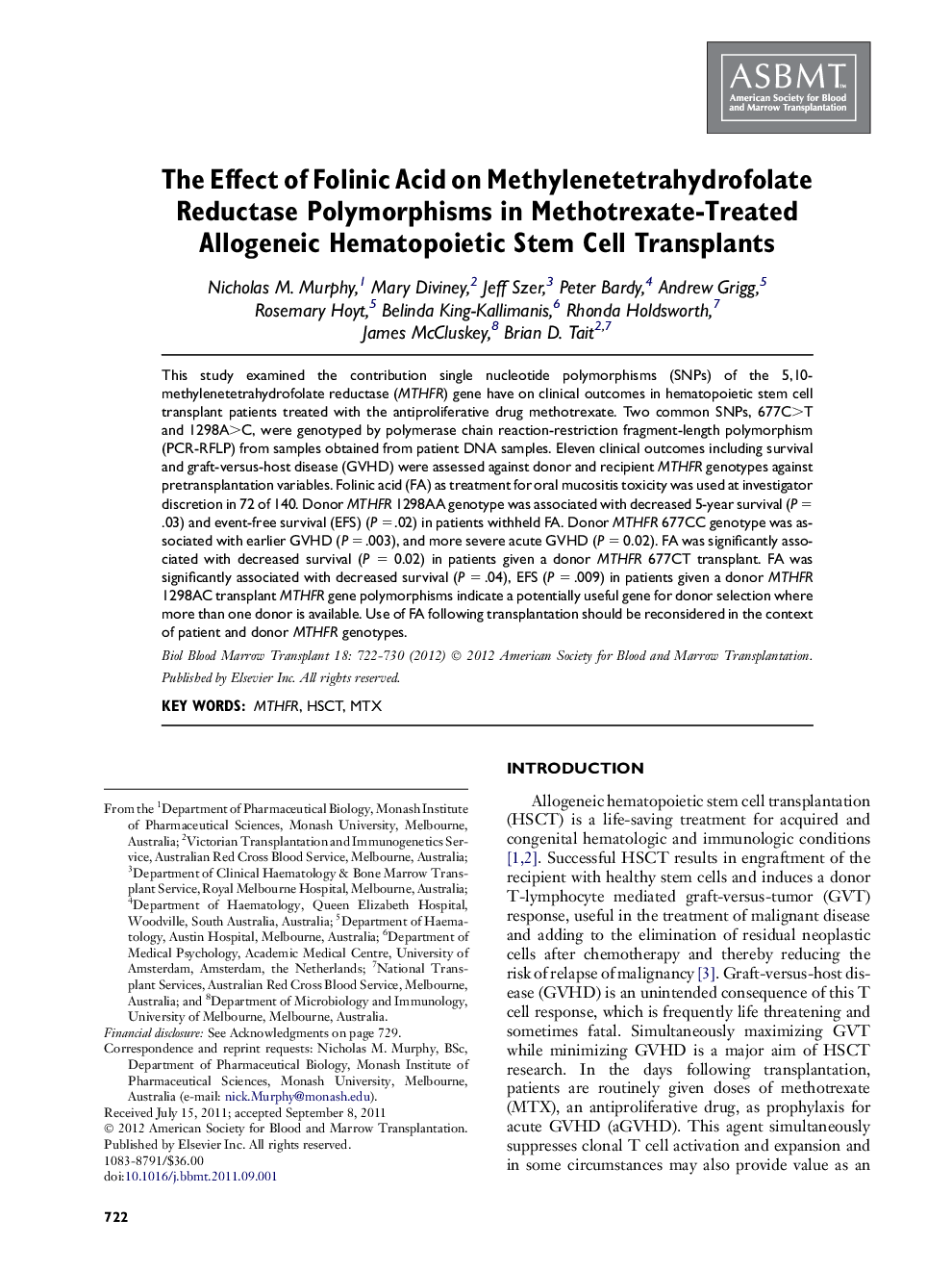| Article ID | Journal | Published Year | Pages | File Type |
|---|---|---|---|---|
| 2102806 | Biology of Blood and Marrow Transplantation | 2012 | 9 Pages |
This study examined the contribution single nucleotide polymorphisms (SNPs) of the 5,10-methylenetetrahydrofolate reductase (MTHFR) gene have on clinical outcomes in hematopoietic stem cell transplant patients treated with the antiproliferative drug methotrexate. Two common SNPs, 677C>T and 1298A>C, were genotyped by polymerase chain reaction-restriction fragment-length polymorphism (PCR-RFLP) from samples obtained from patient DNA samples. Eleven clinical outcomes including survival and graft-versus-host disease (GVHD) were assessed against donor and recipient MTHFR genotypes against pretransplantation variables. Folinic acid (FA) as treatment for oral mucositis toxicity was used at investigator discretion in 72 of 140. Donor MTHFR 1298AA genotype was associated with decreased 5-year survival (P = .03) and event-free survival (EFS) (P = .02) in patients withheld FA. Donor MTHFR 677CC genotype was associated with earlier GVHD (P = .003), and more severe acute GVHD (P = 0.02). FA was significantly associated with decreased survival (P = 0.02) in patients given a donor MTHFR 677CT transplant. FA was significantly associated with decreased survival (P = .04), EFS (P = .009) in patients given a donor MTHFR 1298AC transplant MTHFR gene polymorphisms indicate a potentially useful gene for donor selection where more than one donor is available. Use of FA following transplantation should be reconsidered in the context of patient and donor MTHFR genotypes.
